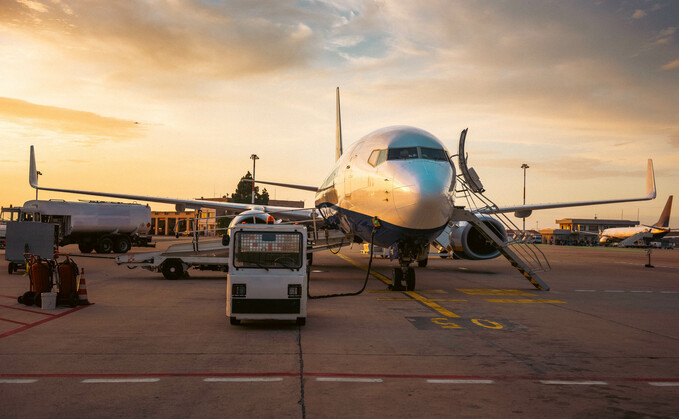
The air travel industry is under increasing scrutiny for its environmental impact, but with the majority of emissions associated with the flight itself, the role of aviation infrastructure in catalysing change is often overlooked. As active investors in listed infrastructure companies, our sector focus and commitment to sustainable investing takes us under the hood of airports and air navigation service providers, where we uncover their often underappreciated and differentiated contributions to sustainability outcomes.
We aim to identify companies that have underappreciated strategies for driving positive environmental outcomes, whilst delivering compelling financial returns. We consider best-in-class strategies to not only include targeted reductions in reported Scope 1-3 emissions, but also efforts to influence other actors, particularly airlines, in the aviation industry's decarbonisation plans. We explore three contributions from two of our portfolio companies we believe are leading the way.
Working with regulators to incentivise use of sustainable aviation fuels
One of the more credible solutions we see to decarbonising aviation is via the use of sustainable aviation fuels (SAF), with other potential solutions likely requiring greater investments and lead time for development. That said SAF usage comes with its own challenges, including a current market price—4-6x costlier than jet fuel. With regards to the role infrastructure operators should play in the take up of SAF, airports are typically not perceived as having a determining role, although we believe airports can in fact influence the SAF value chain through providing regulatory incentives for airlines to use cleaner fuels. Precedent exists, where many airports offer discounted tariffs to airlines using aircraft models that reduce noise and nitrogen oxides (NOx) emissions, and we believe this can be extended to include discounts for those airlines using SAF. Aena, the operator of the Spanish airport system, is actively pursuing such regulatory mechanism in its conversations with Spain Ministry of Transport. We see scope for a final draft regulatory agreement by year end, with implementation possible from 2024. As these discounts are backed by regulation, we do not anticipate the return opportunity to be compromised.
Utilising scale advantages to support procurement and logistics of SAF
In addition to the cost challenges of SAF take up, supply is quite limited at present. According to the International Air Transport Association (IATA), for SAF to account 65% of the sector's carbon mitigation by 2050, 449 billion litres of annual production capacity would be required, compared to an estimated 2022 production capacity of 300 million litres. Against this backdrop, we also see a clear role for airport operators to support the growth in SAF supply and in bringing that supply to airports. As the manager of 46 airports across Spain, we believe Aena is in an advantageous position to use its scale to influence regional development and production. Aena is currently involved in a national programme that would coordinate the logistics in bringing SAF to airports, as well as provide visibility on demand by scaling airline requirements across a country wide network. At its current scale, Aena has a clear role to play in reducing some of the bottlenecks to greater adoption.
Optimising aircraft flight paths using new tech to minimise fuel burn
‘Free routing' is a critical project to help reduce emissions from airspace users. ‘Free routing' allows for airline to fly the shortest and most direct route, rather than using the less direct, pre-defined corridors traditionally used to fly through airspace. This helps airlines save time, fuel, and air navigation costs, all whilst reducing their environmental footprint. Although the European Commission has been encouraging broader adoption of this technology across Europe, implementation has been delayed for numerous reasons by most countries. ENAV Spa, one of two private, and sole listed air navigation services providers, was amongst the first air navigation services providers in Europe to launch this technology in 2016, four years ahead of plan. In the process, 51 million fewer kilometres were travelled, less 204 million kilograms of fuel were consumed, and less 643 million kilograms cardon dioxide (CO2) were emitted through 2016 to 2020. As investors in sustainable listed infrastructure companies, we encourage the proactivity and early investment to support emissions reductions across the broader aviation ecosystem, outside of the company's own Scope 1-3 emissions. We also acknowledge the value that being a first mover in this area can create for shareholders. ENAV's early investment decision has allowed it to capture greater market share in the handling of overflight volumes, ultimately supporting long-term financial returns.
Investing in listed infrastructure has the potential to provide exposure to some of the leading contributors to sustainable development. As active investors in aviation infrastructure, we are able to identify companies that are contributing to the wider aviation industry's decarbonisation plans, and are doing so in a way that may not yet be reflected in their own valuations.
Investing involves risk, including possible loss of principal. Past performance does not guarantee future results. Infrastructure issuers may be subject to regulation by various governmental authorities and may also be affected by governmental regulation of rates charged to customers, operational, tariffs and changes in tax laws, regulatory policies and accounting standards. Foreign securities involve special risks, including currency fluctuations, lower liquidity, political and economic uncertainties and differences in accounting standards.
MM13444| 042023 | 2863929-042024
This post was funded by Principal Asset Management















